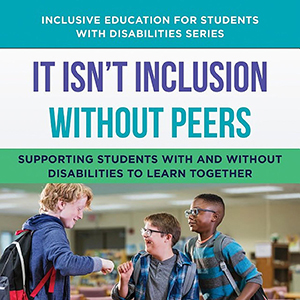How our work is making a difference
The Crane Center for Early Childhood Research and Policy is a multidisciplinary research center dedicated to conducting high-quality research that improves children’s learning and development at home, in school and in the community.
Our Work
Our work ranges from multi-year, federally funded projects that examine outcomes of
thousands of children and families, to program evaluation work in our state, to smaller scale analyses and briefs
meant to inform policy makers and practitioners.
Recent News
Crane faculty associate Dr. Matthew Brock’s latest book aims to foster meaningful engagement between students with disabilities and those without.
During the April Crane Research Forum, Dr. Joyce Lee discussed how preschoolers’ behavior and receptive language development are affected by shared parental responsiveness in low-income households.
This week in Tuned In: Roundup on Ohio governor’s State of the State speech, Black Maternal Health Week, and “Read Together, Grow Together” tips for reading with a child.
This Week in Tuned In: States that have avoided the child care cliff, access to affordable housing in Columbus, and anticipating Gov. DeWine’s State of the State address.








